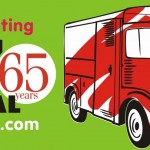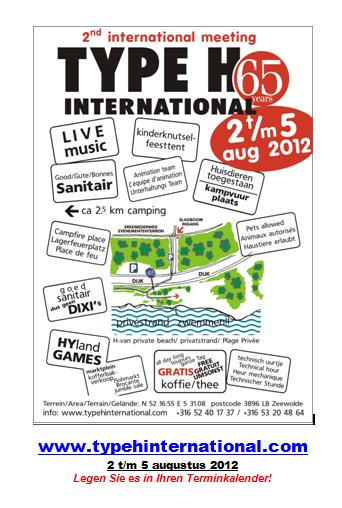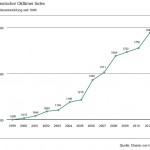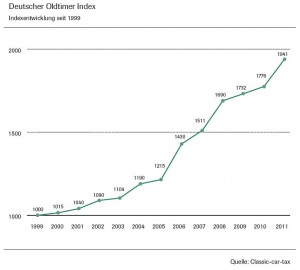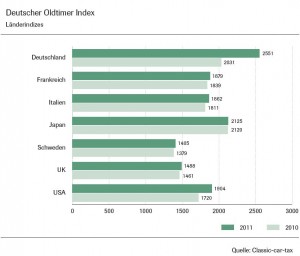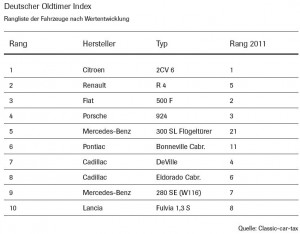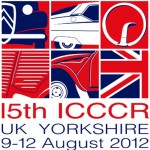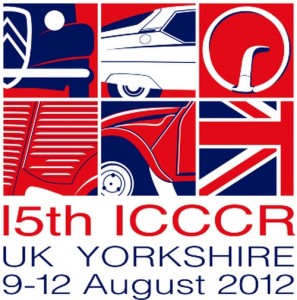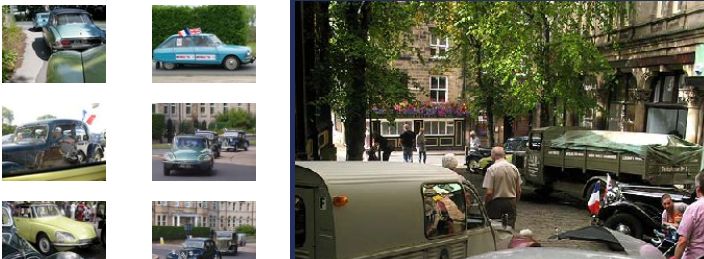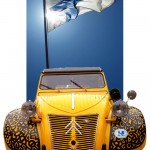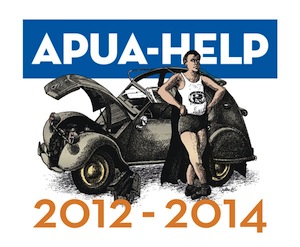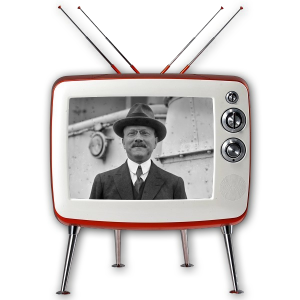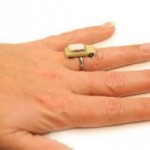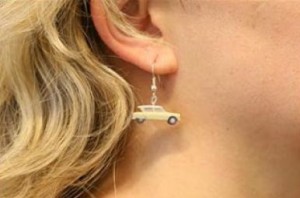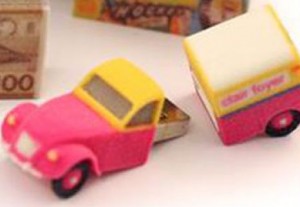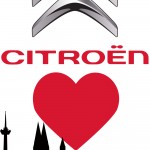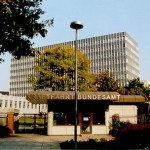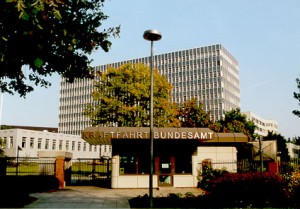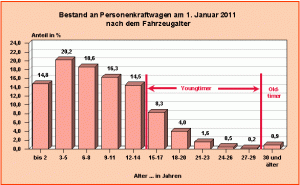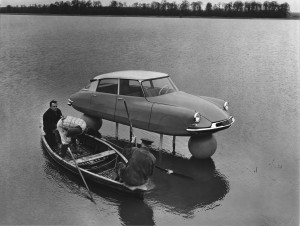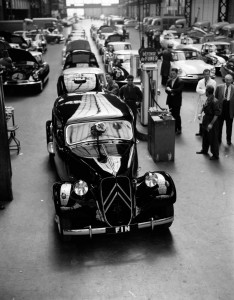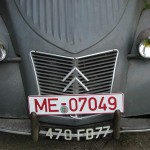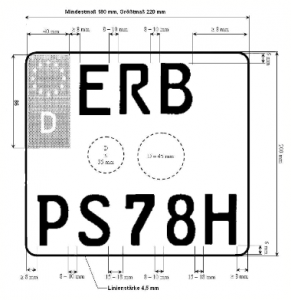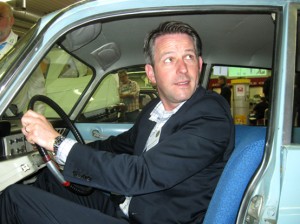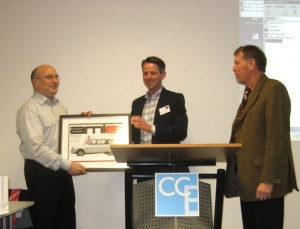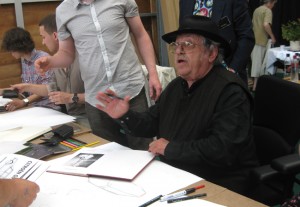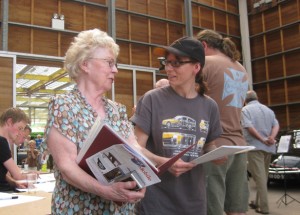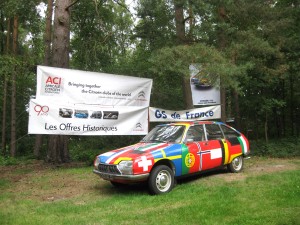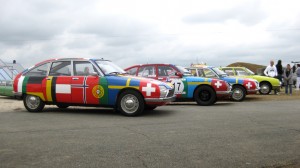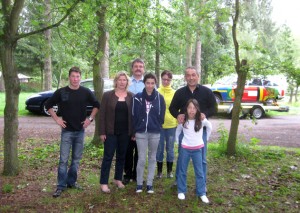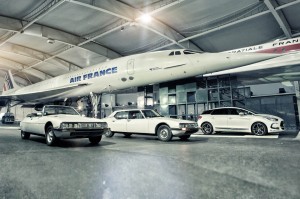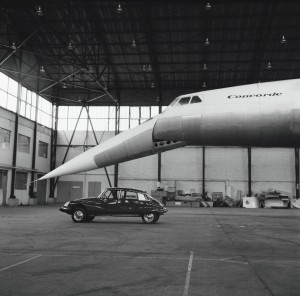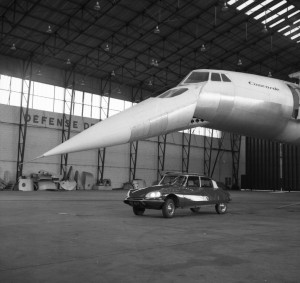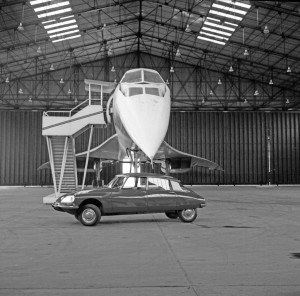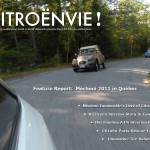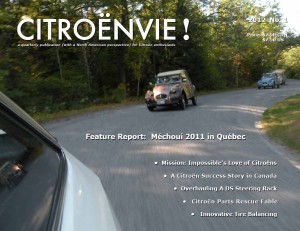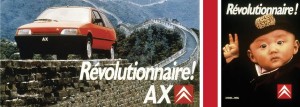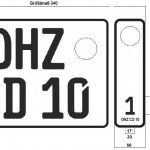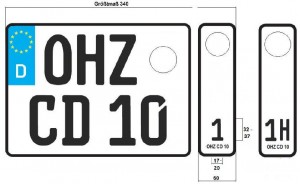(English below, Francais au-dessous)
Wer die Presse zur Marke Citroën in den letzten Tagen etwas intensiver verfolgt hat, wird sicherlich mitbekommen haben, daß derzeit im PSA-Konzern größere Überlegungen zur Restrukturierung und damit verbunden Einsparungen der Marken Citroën und Peugeot angestellt werden.
Nachdem europaweit der Umsatz insbesondere in Spanien, Italien und Großbritannien stärker zurückgegangen war und der Konzern das zweite Halbjahr 2011 mit einem Minus von rund 405 Millionen Euro abgeschlossen hat, und nachdem Jean-Marc Gales bereits seinen Hut nehmen musste und durch den Controller Frédéric Saint-Geours ersetzt wurde, sucht man nach Wegen der Optimierung laufender Kosten (“OPEX”) auch in anderen Märkten.
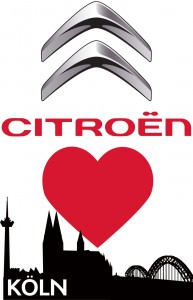
Solidarität für Citroën in Köln: Unser Logo - für Eure Website, bitte verlinken auf www.amicale-citroen.de - danke!
Kurz vor Weihnachten wurden die rund 300 Mitarbeiter des in Porz-Westhoven ansässigen Unternehmens darüber informiert, daß insbesondere in der Verwaltung und Logistik Stellen im größeren Umfang gestrichen werden sollen, und ein weiteres Zusammenrücken der länderspezifischen Vertriebsgesellschaften von Peugeot und Citroën hier wie in anderen Ländern angestrebt wird. Insgesamt will PSA rund 800 Millionen Euro einsparen und rund 6.800 Stellen abbauen.
Bislang liegt der Hauptsitz von Peugeot in Saarbrücken – hier sind rund 350 Mitarbeiter beschäftigt. Die Citroën-Geschäfte werden von Köln aus gesteuert, und die Banken beider Marken haben ihren Sitz in Neu-Isenburg mit weiteren rund 350 Mitarbeitern. In Projektgruppen wird derzeit ermittelt, wie teuer die Restrukturierungskosten ausfallen würden, wenn die beiden Vertriebsstandorte zusammengelegt würden – im Gespräch sind Köln, Saarbrücken und als neutraler Standort Frankfurt. Die Entscheidung soll in den nächsten Wochen getroffen und im März verkündet werden.
Der Kölner Stadtanzeiger berichtete darüber am 3.1.2012 – die Amicale Citroen Deutschland hat den Artikel verlinkt – aber die Nachricht als solches kann aus ACI-D Sicht nicht unkommentiert stehen bleiben.
Denn nach Ansicht vieler Clubaktiven und Citroen-Fans geht es um weit mehr als die reine Finanzoptimierung, oder wie “shareholder value” den Investoren weiter schmackhaft gemacht werden kann. Und auch nicht nur um die Sicherung der Arbeitsplätze, die hier akut bedroht sind.
Seit 1926 ist Citroën in Köln (damals in Poll, zwischendurch in Sülz, nunmehr in Porz) präsent, seit 1927 wurden Autos mit dem Doppelwinkel in der Rheinmetropole gebaut, und 85 Jahre Tradition eines Herstellers – der übrigens länger in Köln ansässig ist als die Ford-Werke (die kamen erst 1931) – können sich nicht einfach durch Controller-gesteuerte Ansichten bereinigen lassen.
Wer so denkt, denkt kurzfristig.
Die Region ist eines der Schwerpunktzentren der Automobilkonzerne – Mazda, Toyota, Renault, Volvo und Nissan haben hier neben Citroën ihre Vertriebszentralen etabliert. Köln hat eine Bedeutung als Wirtschafts-Standort für die Region. Logistisch perfekt gelegen, an einem der größten Verkehrsdrehkreuze Europas, den Flughafen in unmittelbarer Nähe und insbesondere direkt angrenzend an den “Megapol” Großraum Rhein-Ruhrgebiet mit rund 11 Millionen Einwohnern ist die Lage mehr als optimal. Die Flächen der Hauptverwaltung sind ausbaufähig, überflüssige Gewerbe-Flächen könnten veräußert oder vermietet werden – auch dies ein Filetstück der Kölner Gewerbegebiete.
Und der Standort kann sicherlich die Peugeot-Mitarbeiter aufnehmen – die natürlich auch von der logistischen Nähe profitieren würden: Wer will schon nach Saarbrücken in die “Diaspora”??
Köln ist nicht nur irgendeine Metropole. Hier geht es auch nicht darum, daß irgendein mittelmäßiger Automobilkonzern, der vielleicht erst seit 15 Jahren auf der grünen Wiese existiert, dichtgemacht wird und woanders hin umzieht. Köln ist ein emotionaler Standort mit hohem Sympathiewert, besitzt ein 157m hohes Weltkulturerbe als internationales Markenzeichen, und blickt auf eine bedeutende Geschichte im Automobilbau zurück. Dutzende wenn nicht hunderte kleiner Automobil- und Motorradfirmen haben hier angefangen, haben die Stadt im Automobilbau zu dem gemacht, was sie heute auszeichnet. Die Kölner “automobilhistorische Gesellschaft e.V.” dokumentiert das bedeutende Erbe dieser Region.
Dieses Erbe wegzuwerfen ist nicht nur schade, es ist kurzsichtig gedacht und ein nicht wiedergutzumachender emotionaler Faux-Pas, der sich im Nachhinein nur teuer korrigieren ließe.
Solch eine Entscheidung darf nicht allein aus der Perspektive von Controllern getroffen werden.
Denn eines ist klar:
Autos verkaufen sich nicht wie Käse oder Wurst.
Wie kaum ein anderes Produkt ist es mit Emotionen verknüpft, zu denen auch die Sympathie mit dem Unternehmen und seinen ethisch-moralischen Ansichten zählt – und dazu gehört auch die nach aussen sichtbare Firmenpolitik. André Citroën selbst hat dies früh erkannt und das Markenimage bereits in den 20er Jahren entsprechend ausgerichtet. Zur Nachhaltigkeit (“Sustainability”) einer unternehmerischen Bilanz zählen nicht nur CO2-Emissionen und Design, sondern auch diese Faktoren.
Die Nähe zu den Fans der Marke macht Köln auch aus Sicht der Citroënthusiasten attraktiv. In der Region finden die großen Ereignisse statt, um mit der Technoclassica die weltgrößte Messe für Oldtimer und automobiles Kulturgut zu nennen, von den zahlreichen Veranstaltungen, Rallyes und Clubtreffen der vielen ansässigen Clubs ganz zu schweigen.
Kurzum: unser “Citroën-Herz” schlägt klar für Köln (auch wenn das jetzt ein in Düsseldorf wohnender Autor zugeben muss).
Und wie seht Ihr das? Unterstützt Ihr unsere Initiative zur Standortsicherung Köln für Citroën? Seid Ihr solidarisch mit den Kölner Mitarbeitern von Citroën?
Wenn ja, bitten wir Euch um Eure Unterstützung:
1. Bitte verteilt diese Info in Print und online (Eure Club-Website) an Eure Clubs und Mitglieder – und nutzt das Logo zur sichtbaren Unterstützung.
2. Bitte erklärt Eure Solidarität gegenüber den Medien. Neben den Kommentarfunktionen im Kölner Stadtanzeiger (deren Website bzw. Artikel: http://www.ksta.de/html/artikel/1325685752063.shtml) freuen wir uns über Kommentare im Anschluss an diesen Artikel.
3. Nutzt die Möglichkeit, sich an die Wirtschaftsförderung der Stadt Köln zu wenden und um weitere Unterstützung zu werben. Letzter Stand hier: Der Kölner Oberbürgermeister, Jürgen Roters (oberbuergermeister@stadt-koeln.de) sowie die Dezernentin für Wirtschaft und Liegenschaften der Stadt, Ute Berg, haben sich in dieser Woche zu einem Gespräch mit dem Geschäftsführer von Citroën Deutschland GmbH, Holger Böhme getroffen und weitere Gespräche vereinbart sowie ihre Unterstützung zugesagt. In Saarbrücken steht die lokale Politik nicht nur hinter dem Standort, sondern wirbt aktiv dafür. Euer Engagement, Anrufe, Korrespondenz sind wichtig.
4. Emails an die Geschäftsleitung national wie international sind sicherlich beachtet.
Vielen Dank für Eure Solidarität!
Euer
///Stephan Joest
Amicale Citroën Deutschland
www.amicale-citroen.de
—–

Solidarity with Citroën in Cologne: The Logo - for your website, please link to www.amicale-citroen.de - thanks!
Alerting News: Will PSA / Citroën shut down the Cologne subsidiary? Join our solidarity address to keep this site!
Those of you who have been following the press around Citroën in the last few days more intensively, will certainly have noticed that currently the PSA Group has initiated major considerations for restructuring and the associated savings along their brands Citroën and Peugeot.
After European revenues have been going down in 2011, particularly in markets like Spain, Italy and Great Britain, led after second half of 2011 with a loss of approximately 405 million Euro, and after Jean-Marc Gales already had to leave the company and was replaced by controller Frédéric Saint-Geours, the group is searching for new ways to optimize operating costs (“OPEX”) in all markets.
Shortly before Christmas, the approximately 300 employees of Citroën in Germany (their headquarter being located in Cologne) were informed that especially in logistics, administrative and business support functions headcounts will be reduced, and the country-specific branch offices from both Peugeot and Citroen potentially are to be merged like intended also in other countries. In total, PSA aims to save around 800 million Euro and strives to lay off about 6,800 employees.
Until now, Peugeot’s German headquarter is located in Saarbruecken near the French border – there are about 350 employees. Citroën’s businesses currently are managed from Cologne, and the banks of both brands run their headquarters in Neu-Isenburg near Frankfurt, employing another 350 employees. Currently, internal project groups are investigating different scenarios on how expensive the restructuring would be in case the two sites would be merged – the alternatives are to concentrate either in Cologne, Saarbrücken or Frankfurt as a third, neutral location. The decision should be made in the coming weeks and will be announced in March 2012.
The “Kölner Stadt Anzeiger”, Cologne’s biggest regional newspaper, reported about it on 3rd January 2012 – the Amicale Citroen Deutschland has referenced the article – but the message in itself can not be published without comment from our enthusiasts perspective.
For many club members and Citroen enthusiasts in Germany and abroad, the decisiontaking is about way more than just doing a financial benchmarking, or to investigate on how to address the “shareholder value” and investor’s confidence. And not just to secure the jobs that are threatened – an issue which is bad enough by itself anyhow.
Since 1926, Citroën had established its presence in Cologne, since 1927 German Citroën cars were built in this city near to the Rhine. The now 85-year-old tradition of this manufacturer – which by the way is older than the Ford headquarters (they settled in Cologne in 1931) – can not simply be wiped away by a controller’s view onto fiscal figures.
Whoever thinks like this, reacts short term and does not think sustainable for the brand.
The region is one of the main centers of automotive companies in Germany – next to Citroën, also Mazda, Toyota, Renault, Volvo and Nissan have established their Germany distribution centers. Cologne has a meaning as a business location for the region. Logistically perfectly located on one of the largest transportation hubs in Europe and centrally within the main sales regions, the airport at the city borders and in particular directly adjacent to the “Megapol” of the Rhein-Ruhr region with around 11 million inhabitants, the headquarter is located more than optimal. The owned main office facilities are expandable, redundant industrial land could be sold or rented – another prime cut of the Cologne commercial areas.
And the location can certainly take over the Peugeot workers – which would of course benefit from the logistical proximity: Who really would want to stay in Saarbrücken, in *that* solitude?
Cologne is not just any city. It is not about just any mediocre automotive group, which exists maybe only for 15 years on a greenfield site, and which will shut down to move somewhere else.
Cologne is an emotional location with a highly positive national and international emotional value, the Cathedral as a 157m high world heritage site supporting the city’s international perception, and – for those who are not native Germans, important to know – also has a distinguished history in the automotive industry. Dozens if not hundreds of small automobile and motorcycle companies have started here, and the automotive industries have evolved the city into what it now stands for. The Cologne-based automobile history association (“Kölner automobilhistorische Gesellschaft e.V.”) documents the significant historical heritage of this region.
It would not only be a shame to throw away this important heritage, it is short-sighted thinking and an irreparable emotional “faux pas” that could be corrected in retrospect only by expensive measures at a later stage. Such a decision should not be taken solely from the perspective of controllers.
Cars nowadays are not selling like cheese or sausage. And their society status is not given by mother nature, either.
Unlike any other product, it is associated with high emotions, which include the sympathy with the company and its ethical and moral views – and that includes corporate policy. André Citroën himself was one of the first ones to identify this, and shaped the brand’s perception accordingly in the 20s. The German market is highly sensitive to that. Sustainability of a corporate balance sheet must not only consider CO2-emissions or design, but must also be including these factors for decision taking. This is simply because cars are going to get a different status in society as many other “heroes” now become apparent and thus are competing to what is important in modern society’s thinking and its budget allocation.
The proximity to the fans of the Cologne headquarters also makes it attractive from the perspective of “Citroënthusiasts”. In this region the most important events are taking place, to mention eg. the Technoclassica, the world’s largest fair for classic cars and automobiles heritage, not to mention dozens and hundreds of bigger and smaller events, club meetings and rallies of the many local clubs all over.
In Germany, Amicale Citroën Deutschland represents 12.000 club members who are actively supporting the brand and positively act as their brand ambassadors, for modern as well as for vintage cars, and which are mainly concentrated in the Rhein-Ruhr region, too. Worldwide, a “force” of 54.000 organized club members represent a unique value proposition which must not be neglected for the sake of short-sighted incentives.
In short, our “Citroën heart” clearly beats to support Cologne (even when the author of this article is based in Düsseldorf, a city which always has been rival to Cologne 😉 this must be admitted).
How do you see it? Are you supporting our initiative on safeguarding Cologne as Citroën’s headquarter in Germany? Are you in solidarity with the people of working for Citroën in Cologne?
If so, we kindly ask you for some support, here some suggestions:
* At first, please distribute this information in print and online (your club’s website) to your clubs and members, and share our solidarity logo with anybody (click on the logo above to download a higher resolution version).
* Secondly, please express your solidarity with the media. In addition to the comment functions in the “Kölner Stadtanzeiger” (their website resp. article: http://www.ksta.de/html/artikel/1325685752063.shtml), we welcome your comments to this article on our website right below.
* At third, take the opportunity to approach the local politics in Cologne and to ask them for more support. The Cologne mayor, Jürgen Roters ((oberbuergermeister@stadt-koeln.de)) and also the responsible for economic city development in Cologne, Ute Berg, have been in talks with the country manager of Citroen in Germany, Holger Böhme, and have expressed their willingness to support the company to their best. In Saarbrücken, the local politics is not only behind their site, but actively promoting it. Your commitment, calls, letters to the Cologne city government are important.
* Fourthly, a solidarity address expressed to Citroen Germany, PSA France and your local subsidiary certainly leaves an impression.
Thank you for your solidarity!
Yours sincerely,
/// Stephan Joest
Amicale Citroën Germany
www.amicale-citroen.de
—–

Solidarité avec Citroën en Cologne: Le Logo - pour votre site internet, placez-le avec lien à www.amicale-citroen.de - merci!
Dernier Nouveautés: Va PSA / Citroën fermer la filiale de Cologne? Rejoignez notre adresse de solidarité pour maintenir ce site!
Ceux d’entre vous qui ont suivi la presse autour de Citroën dans les derniers jours de manière plus intensive, auront certainement remarqué que actuellement le groupe PSA a lancé des considérations majeures pour la restructuration et les économies associées au long de leur marques Citroën et Peugeot.
Après des revenus européens de PSA ont été en baisse en 2011, en particulier dans les marchés comme l’Espagne, l’Italie et la Grande-Bretagne, après la deuxième moitié de 2011 avec une perte d’environ 405 millions d’euros, et après Jean-Marc Gales déjà eu à quitter l’entreprise et a été remplacé par le contrôleur Frédéric Saint-Geours, le groupe est à la recherche de nouvelles façons d’optimiser les coûts d’exploitation (“OPEX”) dans tous les marchés.
Peu avant Noël 2011, les quelque 300 employés de Citroën en Allemagne (leur siège social est situé à Cologne) ont été informés que, notamment dans la logistique, les fonctions de soutien administratif et d’affaires effectifs seront réduits, et les bureaux de pays spécifiques branche à la fois de Peugeot et Citroën potentiellement doivent être fusionnées comme destiné aussi dans d’autres pays. Au total, PSA vise à économiser environ 800 millions d’euros et vise à licencier environ 6800 employés.
Jusqu’à présent, le siège allemand de Peugeot est situé à Sarrebruck près de la frontière française – il ya environ 350 employés. Les entreprises de Citroën sont actuellement gérés à partir de Cologne et les banques des deux marques gèrent leur siège à Neu-Isenburg près de Francfort, employant des autres 350 employés. Actuellement, les groupes de projet internes étudient différents scénarios sur la façon dont la restructuration coûteuse serait dans le cas des deux sites seraient fusionnées – les solutions alternatives sont à se concentrer soit à Cologne, Sarrebruck ou de Francfort en tant que tiers, lieu neutre. La décision devrait être prise dans les prochaines semaines et sera annoncé en Mars 2012.
Le “Kölner Stadt Anzeiger”, le plus grand journal régional en Cologne, a rapporté à ce sujet le 3 Janvier 2012 – l’Amicale Citroën Deutschland a référencé l’article – mais le message en lui-même ne peut être publié sans commentaire de notre point de vue passionnés.
Pour les nombreux membres du club et les passionnés de Citroën en Allemagne et à l’étranger, la raison pour faire des decisions est d’environ de façon plus que de simplement faire un benchmarking financiers, ou pour enquêter sur la façon d’aborder la «valeur actionnariale» et la confiance des investisseurs. Et pas seulement pour sécuriser les emplois qui sont menacés – un problème qui est assez mauvais en soi de toute façon.
Depuis 1926, Citroën a établi sa présence à Cologne, depuis 1927 les voitures Citroën allemands ont été construits dans cette ville, à proximité du Rhin. La tradition maintenant 85 ans de ce manufacteur – qui en passant est plus vieux que le siège de Ford (ils se sont installés à Cologne en 1931) – ne peut pas être simplement effacés par la vue d’un contrôleur sur les chiffres budgétaires seulement.
Celui qui pense comme ça, réagit à court terme et ne pense pas durable pour la marque.
La région est l’un des principaux centres d’entreprises du secteur automobile en Allemagne – à côté de Citroën, aussi Mazda, Toyota, Renault, Volvo et Nissan ont établi leurs centres de distribution en Allemagne. Cologne a une signification en tant que lieu d’affaires pour la région. Logistique, idéalement situé sur l’un des carrefour les plus importants de transport en Europe et centralisée dans les régions de vente principal, l’aéroport “Köln-Bonn” étant à proximité, et en particulier directement adjacent à la “Megapol” de la région Rhin-Ruhr, avec près de 11 millions d’habitants, le siège social est située à plus de optimaux. Les installations appartenant à bureaux principaux sont extensible, redondant terrains industriels pourraient être vendus ou loués – autre coupe Premier des zones de Cologne commerciales.
Et l’emplacement peut certainement prendre en charge les travailleurs de Peugeot – ce qui serait bien sûr un avantage de la proximité logistique: Qui a vraiment envie de rester à Sarrebruck, dans cette “solitude”??
Cologne n’est pas seulement une ville. Il ne s’agit pas simplement d’un groupe médiocre de l’automobile, qui existe peut-être seulement de 15 ans sur un site vierge, et qui sera fermé à la déplacer ailleurs.
Cologne est un lieu affectif avec une forte valeur émotionnelle positive national et international, la cathédrale comme un site 157m monde de la haute valeur du patrimoine de soutien international de la ville, et a aussi une histoire distinguée dans l’industrie automobile. Quelques dizaines et centaines de petites sociétés des automobiles et des moto ont commencé ici, et les industries de l’automobile ont évolué de la ville dans ce qu’elle représente maintenant pour. L’association de l’histoire automobile basée à Cologne (“Kölner automobilhistorische Gesellschaft eV») a documenté les preuves du patrimoine historique important de cette région.
Il ne serait pas seulement une honte de jeter ce patrimoine important, il est myope pensée et une irréparables émotionnelle “faux pas” qui pourraient être corrigées rétrospectivement que par des mesures coûteuses à une étape ultérieure. Une telle décision ne doit pas être prise uniquement dans la perspective des contrôleurs.
Aujourd’hui, les voitures ne sont pas vendu comme du viande ou des saucisses. Et leur statut dans la société n’est pas donnée par mère nature, que ce soit.
Contrairement à tout autre produit, il est associé avec des émotions élevées, qui comprennent la sympathie avec l’entreprise et ses vues morales et éthiques – et cela inclut la politique d’entreprise. André Citroën était lui-même l’un des premiers à identifier ce, et en conséquence, il a adapté l’image de la marque dans les années 20. Aujourd’hui, le marché allemand est certainement très sensible à cela. La durabilité d’un bilan de l’entreprise doit être l’inclusion de ces facteurs pour prendre des décisions, aussi parce que les voitures vont obtenir un statut différent dans la société en raison des nombreuses autres “héros” devenu apparent et sont donc en compétition pour ce qui est important dans la pensée de la société moderne et l’allocation budgétaire.
La proximité pour les fans du siège de Cologne, le rend également attrayant du point de vue “Citroënthusiastes”. Dans cette région des plus importants événements se déroulent, pour ne citer par exemple la Technoclassica, le plus grand salon au monde pour les voitures classiques et du patrimoine automobile, sans parler des dizaines et des centaines d’événements grands et petits, aux réunions du club et des rassemblements des nombreux clubs locaux de partout.
En Allemagne, l’Amicale Citroën Deutschland représente 12.000 membres des club de toutes les types qui soutiennent activement et positivement la marque agissent comme leurs ambassadeurs de la marque, pour les modernes ainsi que pour les voitures anciennes, et qui sont principalement concentrées dans la région Rhin-Ruhr, aussi. Dans le monde, une “force” des 54.000 membres du club a organisé représentent une proposition de valeur unique qui ne doit pas être négligée pour des raisons de courte vue des avantages.
En bref, notre “cœur Citroën” bat clairement à l’appui de Cologne (même lorsque l’auteur de cet article est basé à Düsseldorf, une ville qui a toujours été rivaux à Cologne 😉 cela doit être admis).
Comment voyez-vous? Etes-vous soutenir notre initiative sur la sauvegarde de Cologne comme siège de Citroën en Allemagne? Êtes-vous en solidarité avec le peuple de travailler pour Citroën à Cologne?
Si oui, nous vous suggérons des choses comme ca:
* Dans un premier temps, s’il vous plaît diffuser cette information imprimés et en ligne (site Internet de votre club) pour vos clubs et leurs membres, et de partager notre logo solidarité avec tout le monde (cliquez sur le logo ci-dessus pour télécharger une version de plus haute résolution).
* Deuxièmement, s’il vous plaît d’exprimer votre solidarité avec les médias. En plus des fonctions de commentaire dans le “Kölner Stadtanzeiger” (leur site: http://www.ksta.de/html/artikel/1325685752063.shtml), nous nous réjouissons de vos commentaires à cet article sur notre site juste en dessous.
* Au troisième, profiter de l’occasion d’aborder la politique locale de Cologne et de leur demander plus de soutien. Mise à jour ici: Le maire de Cologne, Jürgen Roters, (oberbuergermeister@stadt-koeln.de) et l’adjoint au maire de propriétés économiques de la ville, Ute Berg, se sont rencontrés cette semaine avec le directeur général de Citroën en Allemagne, Holger Böhme, et ont convenu de tenir d’autres discussions, et ont promis leur soutien. À Sarrebruck, la politique locale n’est pas seulement derrière leur site, mais la promouvoir activement. Votre engagement, appels, lettres à l’administration de la ville de Cologne sont importants.
* Quatrièmement, une adresse de solidarité exprimé à Citroën en Allemagne, en France et PSA votre filiale locale laisse certainement une impression.
Merci pour votre solidarité!
Cordialement,
/// Stephan Joest
Amicale Citroën Deutschland
www.amicale-citroen.de
